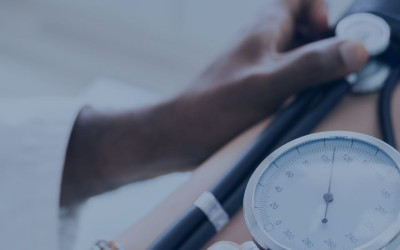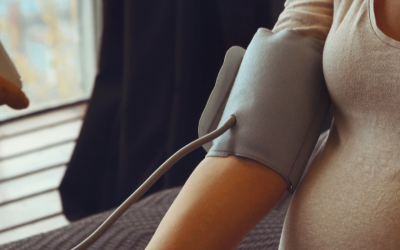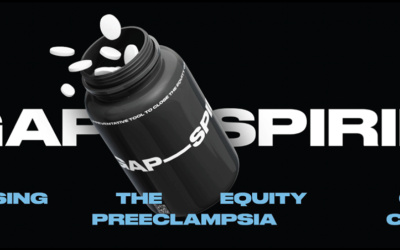
Advocates Seek Progress on Preeclampsia Biomarker Development
September 25, 2020 – Melbourne, FL –– The Preeclampsia Foundation is urgently calling for the development of biomarker tests for simple, rapid, and accurate diagnosis and prediction of preeclampsia, a life-threatening hypertensive disorder of pregnancy. This call to action recognizes the roles of various stakeholders and builds upon the work the Foundation and other forward thinkers have accomplished, bringing biomarkers closer to reality here in the United States.
Biomarkers are powerful laboratory tools that can be used to detect or predict pathology, often before signs and symptoms are present. These unique biological products are found throughout the body and may be quantifiable by a simple blood, urine, or even a saliva test at various points in pregnancy. There are several important benefits to introducing biomarkers: 1) Screening pregnant women for pre-symptomatic disease to enable interventional research studies, accelerating progress toward therapeutic drugs or biologics; 2) Determining disease severity and risk stratifying women to improve surveillance and management, such as timing of delivery; and 3) Reducing costs associated with short and long term medical care by eliminating unnecessary testing, surveillance, and unnecessary iatrogenic births.
“Sadly, healthcare providers have limited tools to diagnose preeclampsia," says Eleni Tsigas, CEO. “Blood pressure, proteinuria, maternal symptoms, and basic blood chemistries are highly variable, nonspecific and poorly predictive of outcomes. Limited diagnostic tools mean babies are delivered prematurely when perhaps they didn’t need to be. On the opposite side of the spectrum are mothers whose care should have been managed more aggressively. This syndrome is complex. If we are going to improve the care and treatment of preeclampsia, providers need more sophisticated tools.”
Advocating for biomarkers is not new for the Foundation, which held its first biomarker consortium in 2012, bringing together key stakeholders to advance the field, identifying barriers as well as strategies to overcome them. Today, the Foundation calls upon leaders in research, industry, regulatory bodies, policy makers, professional societies, and eventually payers to engage and address this call to action, removing barriers and accelerating the development and adoption of biomarkers to improve screening and diagnosis of hypertensive and placental disorders of pregnancy.
Read the entire statement here and join the call to action by signing a petition here.
About Preeclampsia
Preeclampsia, a hypertensive disorder of pregnancy, affects about 1 in every 12 U.S. pregnancies. It is a leading cause of premature birth and maternal and infant death, taking the lives of 70,000 women and 500,000 babies worldwide each year. The estimated cost of preeclampsia in the United States was $2.18 billion dollars in 2012, three times more than a normal pregnancy. The incidence of preeclampsia – especially in its most severe form – has been increasing, with unacceptable racial and ethnic disparities. It occurs sometime after the twentieth week of pregnancy and up to six weeks postpartum. Many of the signs and symptoms can be mistaken for normal discomforts of pregnancy.
About the Preeclampsia Foundation
The Preeclampsia Foundation is a U.S.-based 501(c)(3) patient advocacy organization established in 2000 to improve the outcomes of hypertensive disorders of pregnancy by educating, supporting, and engaging the community, improving healthcare practices, and finding a cure. We envision a world where preeclampsia and related hypertensive disorders of pregnancy no longer threaten the lives of mothers and their babies. Visit www.preeclampsia.org.
###
Related Articles

Congratulations on receiving your brand new Cuff Kit®! Want to learn more about how to use your iHealth Track device? Here are some handy videos and links to get you started. Unpacking and using...

Nurses play a vital role in detecting preeclampsia and caring for patient before, during, and beyond pregnancy.

A key component needed in the fight against preeclampsia is the development of tests for simple, rapid, and accurate diagnosis and prediction through the development and adoption of biomarkers.

Preeclampsia can strike quickly. Give new and expectant moms the best tool for early detection of hypertensive disorders with the Preeclampsia Foundation Cuff Kit® - a pregnancy-validated monitor wit...

Every woman should be able to check her own blood pressure at home.

Preventing and managing high blood pressure with healthy lifestyle behaviors are at the center of updated clinical guidelines published this week in the American Heart Association (AHA) peer-reviewed...

Hypertensive disorders of pregnancy are a leading cause of maternal death in the state of Indiana. To address this critical issue, the Indiana Hospital Association is teaming up with the Preeclampsia...

Recientemente, me encontré con una publicación en las redes sociales señalando la crisis de salud maternal desde la perspectiva de una mujer negra. Una persona respondió a...

For more on the Preeclampsia Foundation's work to amplify all research related to biomarkers for improved prediction and diagnostic tools, please visit https://preeclampsia.org/biomarkers. INDIANAPOL...

GAP—SPIRIN campaign gets low-dose aspirin to those most at risk to help close the maternal health gap in preeclampsia ________ NEW YORK, January 23, 2025/PRNewswire/ – In recognition of...
